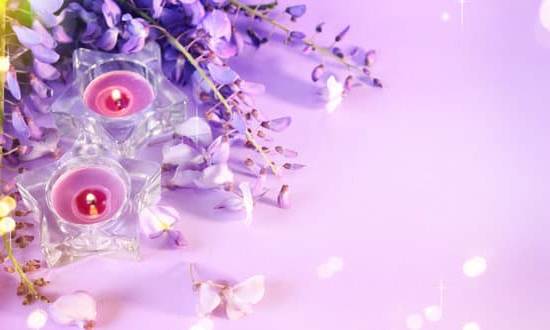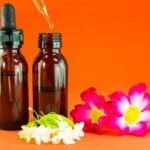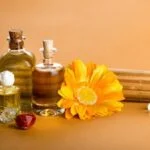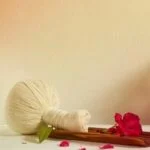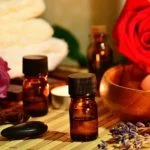Is the essential aromatherapy like a humidifier? Essential aromatherapy is the use of essential oils to improve physical, emotional, and mental well-being. Aromatherapy has gained popularity for its therapeutic benefits, and many people wonder if it is similar to using a humidifier. In this article, we will explore the concept of essential aromatherapy, compare it with a humidifier, and highlight the benefits of incorporating essential oil diffusers into your daily routine.
Essential aromatherapy involves the use of natural plant extracts to promote health and wellness. These essential oils are extracted from flowers, herbs, or other plants and are highly concentrated. When used in a diffuser, the aroma of these oils can have a calming, uplifting, or energizing effect on individuals. This practice is often used for relaxation, stress relief, improved sleep quality, and even boosting immunity.
While both essential oil diffusers and humidifiers emit aromatic mist into the air, they serve different purposes. A humidifier primarily adds moisture to the air to alleviate dryness in the environment, particularly during colder months or in arid climates.
On the other hand, an essential oil diffuser not only adds moisture but also disperses pleasant scents that have therapeutic effects on the mind and body. Each serves a distinct function but can work together harmoniously to create a soothing atmosphere at home.
Understanding the Differences Between Essential Aromatherapy and a Humidifier
Essential aromatherapy is the use of essential oils extracted from plants to promote well-being and health. These oils are often diffused into the air using a device called an essential oil diffuser. Aromatherapy has been used for centuries to help with relaxation, improve sleep quality, reduce stress, and even alleviate certain health issues. The key benefit of aromatherapy is its ability to create a pleasant and calming atmosphere through the dispersion of natural scents.
On the other hand, a humidifier is a device that adds moisture to the air in a room to prevent dryness that can cause irritation or discomfort. While both essential oil diffusers and humidifiers can improve indoor air quality, they serve different purposes. A major difference between the two is that essential oil diffusers are specifically designed to disperse aromatic essential oils into the air, whereas humidifiers focus solely on adding humidity to combat dry air.
One way to distinguish between essential aromatherapy and a humidifier is by understanding their primary functions: while an essential oil diffuser focuses on dispersing pleasant scents for therapeutic benefits, a humidifier primarily works to increase moisture levels in the environment. However, some modern devices combine these functions by doubling as both a humidifier and an essential oil diffuser. This hybrid device can provide both benefits simultaneously, creating a soothing ambiance while improving indoor air quality through increased humidity levels.
| Key Difference | Essential Aromatherapy | Humidifier |
|---|---|---|
| Main Function | Disperses aromatic essential oils for therapeutic benefits | Adds moisture to the air to combat dryness |
| Benefit | Promotes relaxation and well-being through pleasant scents | Prevents dryness that can cause irritation or discomfort |
Benefits of Using an Essential Oil Diffuser for Aromatherapy
A popular method of practicing aromatherapy is by using an essential oil diffuser, which is the essential aromatherapy like a humidifier but with unique benefits. An essential oil diffuser not only adds pleasant fragrances to your home but also disperses the therapeutic properties of different essential oils into the air.
This can help promote relaxation, reduce stress, improve mental clarity, and even boost your immune system. It works by breaking down the essential oils into small molecules and dispersing them as a mist or vapor in the air.
One of the key benefits of using an essential oil diffuser for aromatherapy is its ability to create a calming atmosphere in your living space. Whether you choose lavender to relax before bedtime or eucalyptus to clear your mind and invigorate your senses, the right essential oil blend can help set the mood for relaxation, meditation, or focus. Additionally, using an essential oil diffuser can also eliminate odors in your home, offering a natural alternative to chemical-based air fresheners.
Furthermore, essential oil diffusers are versatile and can be used in various settings such as homes, offices, yoga studios, or spas. Many models offer different features like timer settings or color-changing LED lights to enhance your overall experience.
When selecting an essential oil diffuser for aromatherapy purposes, consider factors such as room size, run time, ease of cleaning, and budget. With consistent use and proper maintenance, an essential oil diffuser can be a valuable addition to your well-being routine that promotes relaxation and overall wellness.
| Benefit | Description |
|---|---|
| Promotes relaxation | Creates a calming atmosphere through the dispersion of therapeutic properties of essential oils. |
| Improves mental clarity | Helps reduce stress and improve focus with specific blends of essential oils. |
| Natural odor elimination | Avoids chemical-based air fresheners by using natural scents for a fresher home environment. |
Benefits of Using a Humidifier in the Home
Using a humidifier in the home can offer a range of benefits beyond just adding moisture to the air. One of the key advantages is improving indoor air quality, especially during dry winter months or in areas with low humidity levels.
Dry air can lead to various issues such as skin dryness, respiratory irritation, and even damage to wooden furniture. By introducing a humidifier into your living space, you can maintain optimal humidity levels, creating a more comfortable environment for you and your family.
Enhanced Respiratory Health
Another significant benefit of using a humidifier is how it can positively impact respiratory health. Dry air can exacerbate conditions like asthma, allergies, and sinus congestion. Adding moisture to the air through a humidifier can help alleviate these symptoms by keeping nasal passages lubricated and promoting easier breathing. This is especially beneficial for individuals who suffer from respiratory issues or those prone to allergies.
Prevention of Illness
Maintaining proper humidity levels with a humidifier not only improves respiratory health but also helps in preventing illnesses caused by dry air. Research has shown that viruses thrive in low-humidity environments, making individuals more susceptible to colds, flu, and other respiratory infections during the winter months.
By using a humidifier to keep indoor humidity levels between 30-50%, you can create an environment that hinders the spread of airborne pathogens and reduces the risk of getting sick. Ultimately, incorporating a humidifier into your home routine is essential for creating a healthy and comfortable living space for you and your loved ones.
Similarities Between Essential Aromatherapy and a Humidifier in Creating a Peaceful Ambiance
When it comes to creating a peaceful ambiance in your home, both essential aromatherapy and a humidifier play crucial roles. The use of essential oils in diffusers not only adds delightful scents to your surroundings but also promotes relaxation and stress relief.
Similarly, a humidifier helps maintain optimal humidity levels in the air, which can contribute to a calming atmosphere. In essence, both essential aromatherapy and a humidifier work together to enhance your well-being and create a serene environment within your living space.
Enhancing Relaxation With Essential Aromatherapy
Essential oils have been long praised for their therapeutic properties, including their ability to improve mood and promote relaxation. When used in an essential oil diffuser, these aromatic oils release fragrances that can uplift your spirits and help you unwind after a long day. Whether you prefer the calming scents of lavender, the invigorating aroma of peppermint, or the soothing fragrance of chamomile, incorporating essential aromatherapy into your daily routine can significantly impact your overall well-being.
Promoting Tranquility With a Humidifier
Just like essential oils, a humidifier also plays a vital role in creating a tranquil environment within your home. By maintaining proper moisture levels in the air, especially during dry seasons or in arid climates, a humidifier can help alleviate issues like dry skin, irritated sinuses, and scratchy throats.
With added features like optional aromatherapy trays where you can add essential oils for an extra boost of relaxation, some humidifiers offer dual benefits that combine the advantages of both devices for an enhanced peaceful ambiance.
How Essential Oils Can Improve Indoor Air Quality
Essential oils are not only known for their pleasant fragrance but also for their ability to improve indoor air quality. When used in a diffuser, essential oils can help purify the air and eliminate unwanted odors. The process of diffusing essential oils releases tiny molecules into the air that can have antimicrobial properties, helping to reduce airborne bacteria and viruses. This can be particularly beneficial during cold and flu seasons or when dealing with allergies.
To understand how essential oils can improve indoor air quality, it is important to consider the specific benefits of some popular oils:
- Lavender oil: Known for its calming properties, lavender oil can also help neutralize odors in the air.
- Tea tree oil: With its natural antiseptic qualities, tea tree oil can help cleanse the air of impurities.
- Lemon oil: This refreshing citrus scent not only uplifts the mood but also has antibacterial properties that can freshen up stale indoor air.
Using an essential oil diffuser is a simple yet effective way to harness the benefits of these oils for improving indoor air quality. It is important to choose high-quality, pure essential oils and follow safety guidelines when diffusing them in your home.
Regularly changing the water and cleaning your diffuser will ensure optimal performance and maximize the benefits of aromatherapy for cleaner, fresher indoor air. Remember that incorporating essential aromatherapy like a humidifier is a holistic approach to promoting overall well-being in your living environment.
How a Humidifier Can Help With Respiratory Issues and Allergies
Using a humidifier in your home can provide numerous benefits, especially when it comes to respiratory issues and allergies. Dry air can aggravate symptoms such as coughing, sore throat, and congestion, making it harder for individuals with respiratory conditions like asthma or allergies to breathe comfortably. A humidifier works by adding moisture to the air, which can help alleviate these symptoms and improve overall breathing comfort.
For individuals with allergies, a humidifier can be particularly beneficial as it helps to maintain optimal humidity levels in the air. Dry air can irritate the nasal passages and throat, making allergy symptoms worse. By using a humidifier, you can create a more comfortable environment that may reduce the severity of allergic reactions. Additionally, maintaining proper humidity levels can also help prevent the spread of airborne viruses and bacteria that thrive in dry environments.
One key advantage of using a humidifier for respiratory issues is its ability to soothe irritated nasal passages and alleviate congestion. When the air is too dry, mucus membranes in the nose and throat become dry and inflamed, leading to discomfort and difficulty breathing.
Adding moisture to the air with a humidifier can help relieve these symptoms and promote better respiratory health. It is important to note that using distilled water in your humidifier is recommended to prevent the spread of any impurities into the air.
Tips for Choosing the Right Essential Oil Diffuser or Humidifier for Your Needs
When it comes to choosing the right essential oil diffuser or humidifier for your needs, there are a few key factors to consider. Firstly, think about the size of the area you want to cover with the diffuser or humidifier. Different models have different output capacities, so it’s important to choose one that can effectively cover the space you need.
Secondly, consider the features you want in a diffuser or humidifier. Some essential oil diffusers come with built-in timers, night lights, or even Bluetooth speakers for added convenience and functionality. On the other hand, humidifiers may offer features like adjustable mist settings or automatic shut-off to ensure safety and ease of use.
Lastly, think about maintenance and upkeep when choosing between an essential oil diffuser and a humidifier. Essential oil diffusers may require regular cleaning and occasional replacement of parts like wicks or filters. Humidifiers also need regular cleaning and disinfecting to prevent mold and bacteria growth. Consider how much time and effort you are willing to put into maintaining your chosen device.
- Consider the size of the area you want to cover
- Think about the features you desire in a device
- Be mindful of maintenance requirements
Remember that whichever option you choose – whether it is an essential oil diffuser for aromatherapy benefits or a humidifier for improved air quality – both can contribute positively to your home environment. Selecting the right device based on your specific needs can enhance your well-being and create a peaceful atmosphere in your living space.
Ultimately, whether you opt for an essential oil diffuser or a humidifier, incorporating one of these devices into your home routine can have numerous benefits for your physical health as well as your emotional well-being. Making an informed decision based on these tips will help ensure that you find the perfect fit for creating a comfortable and soothing atmosphere in your home.
Conclusion
In conclusion, essential aromatherapy offers a wide range of benefits that go beyond just creating a pleasant fragrance in your home. The use of essential oils in a diffuser can help improve your mood, reduce stress and anxiety, promote better sleep, and even boost your immune system.
It is truly a versatile tool that can enhance the overall well-being of you and your family. While essential aromatherapy may not function exactly like a humidifier in terms of adding moisture to the air, its therapeutic effects make it an invaluable addition to any living space.
On the other hand, humidifiers play a crucial role in maintaining proper indoor humidity levels, especially during dry winter months or in arid climates. By releasing moisture into the air, humidifiers can alleviate respiratory issues, soothe dry skin, and reduce allergens like dust mites.
This makes them an essential appliance for promoting better health and comfort within your home environment. In this sense, a humidifier serves as a complementary tool to essential aromatherapy by ensuring optimal air quality for the diffusion of essential oils.
Ultimately, whether you choose to incorporate essential aromatherapy or a humidifier into your home routine, both options offer unique advantages that can greatly enhance your quality of life. By selecting the right essential oil diffuser or humidifier based on your specific needs and preferences, you can create a soothing atmosphere that promotes relaxation, wellness, and harmony within your living space.
So why not consider integrating either essential aromatherapy or a humidifier into your daily routine to experience the numerous benefits they have to offer?
Frequently Asked Questions
Does an Essential Oil Diffuser Do the Same as a Humidifier?
An essential oil diffuser and a humidifier serve different purposes, although they both add moisture to the air. While a humidifier is designed solely to increase humidity levels in a room, an essential oil diffuser not only disperses water molecules but also scents from essential oils for aromatherapy benefits.
How Can I Humidify My Room Without a Humidifier?
There are alternative ways to humidify a room without using a humidifier. Placing bowls of water near heat sources, using a towel rack to dry wet towels inside the room, or placing houseplants that release moisture into the air can help increase humidity levels naturally.
How Do You Use Essential Oils Without a Humidifier?
Essential oils can be used without a humidifier by using methods such as steam inhalation, adding drops of essential oils to a bowl of hot water, creating a DIY reed diffuser with essential oils and carrier oil, or simply applying diluted essential oils onto pulse points for personal benefits.

Are you looking for a natural way to improve your health and wellbeing?
If so, aromatherapy may be the answer for you.

